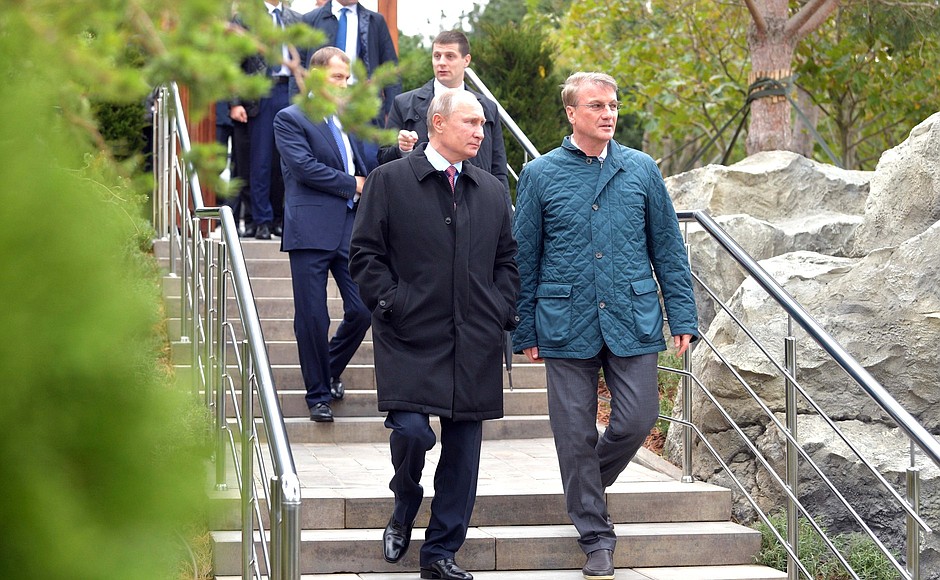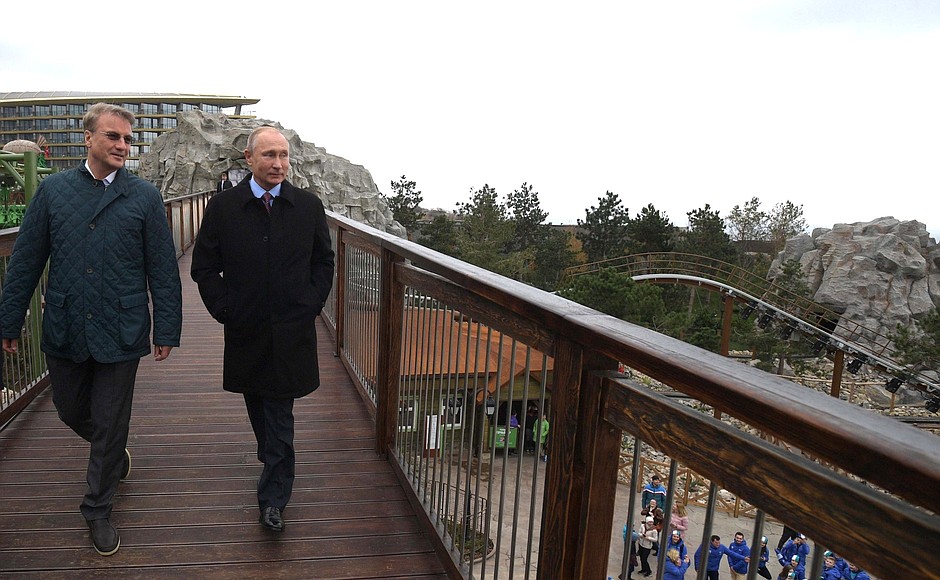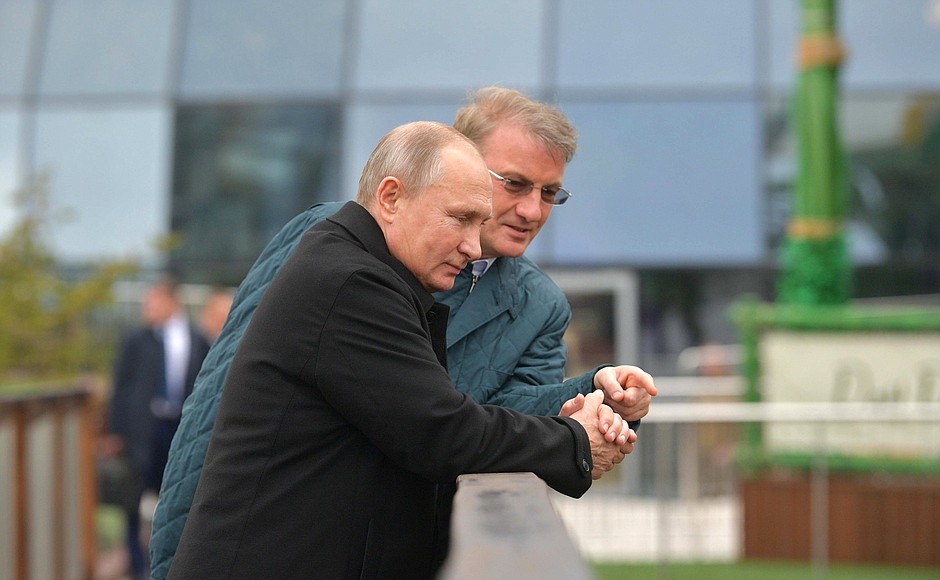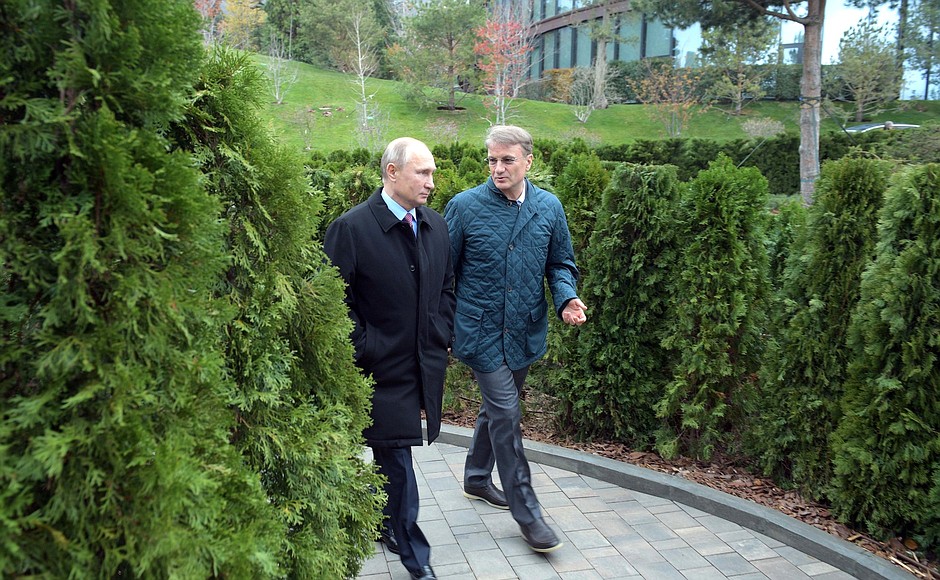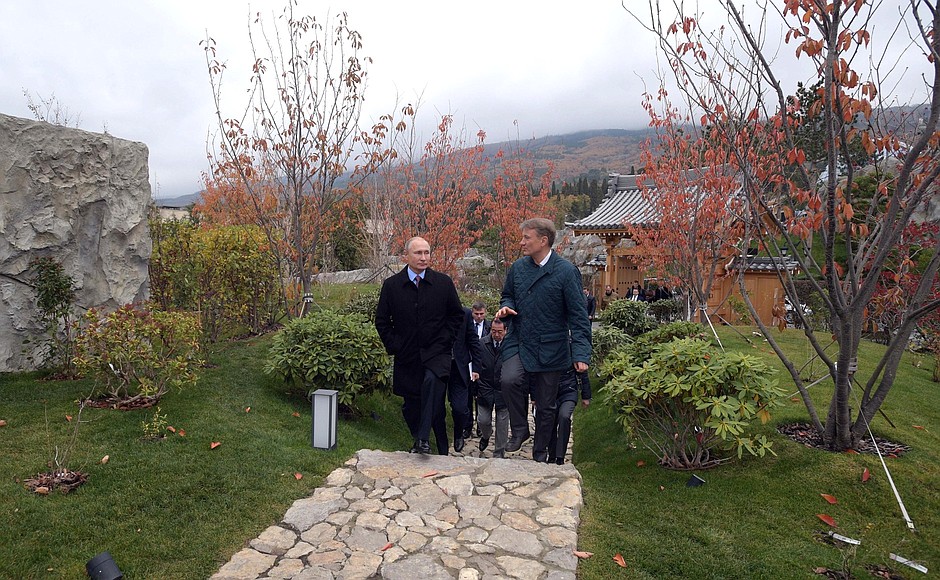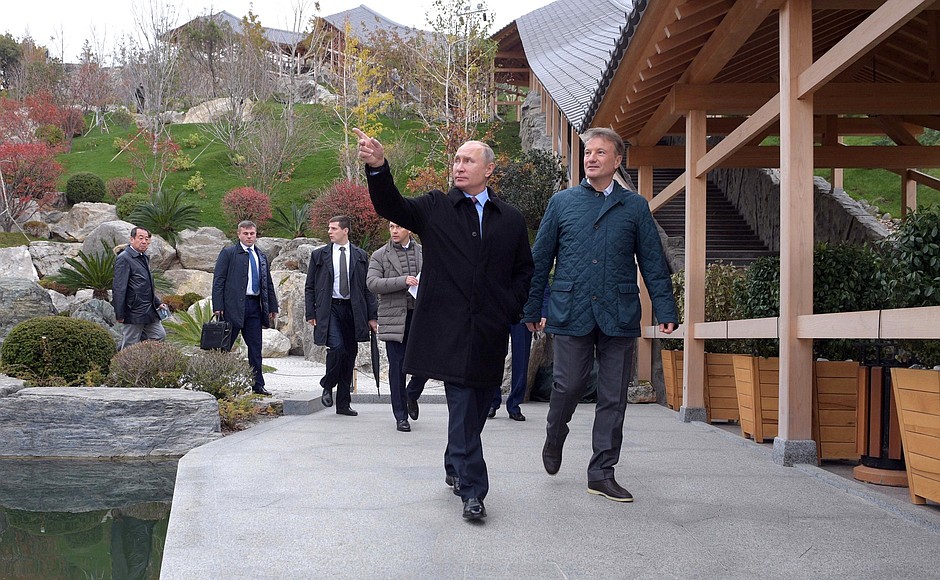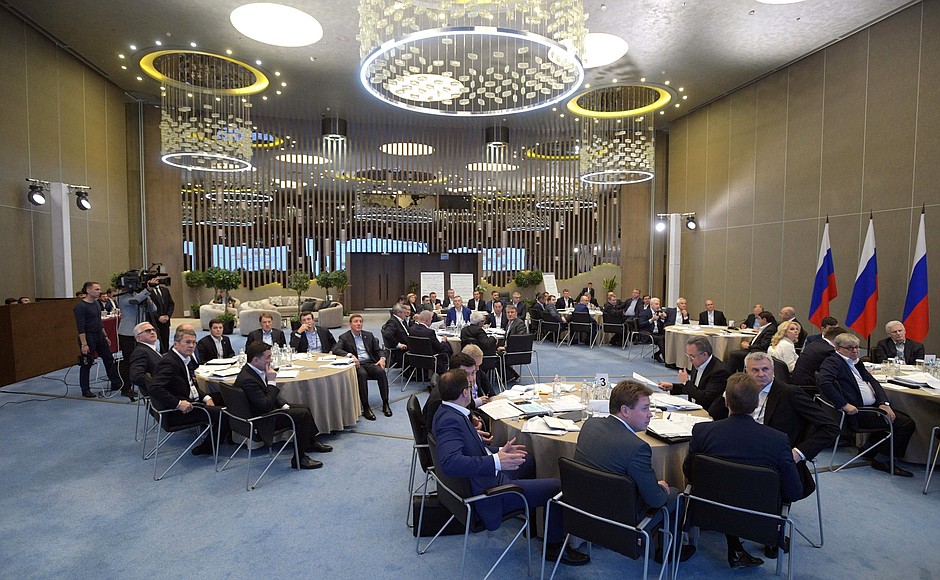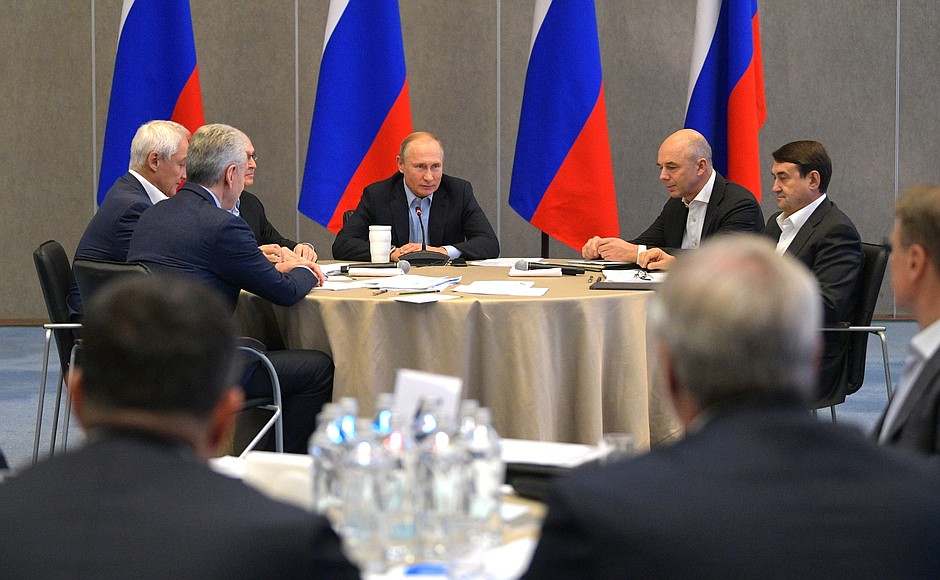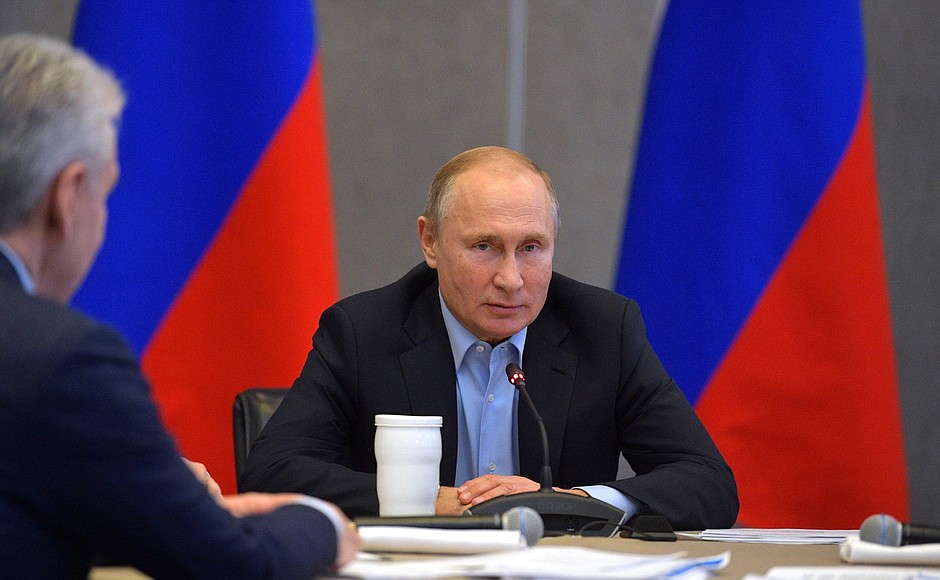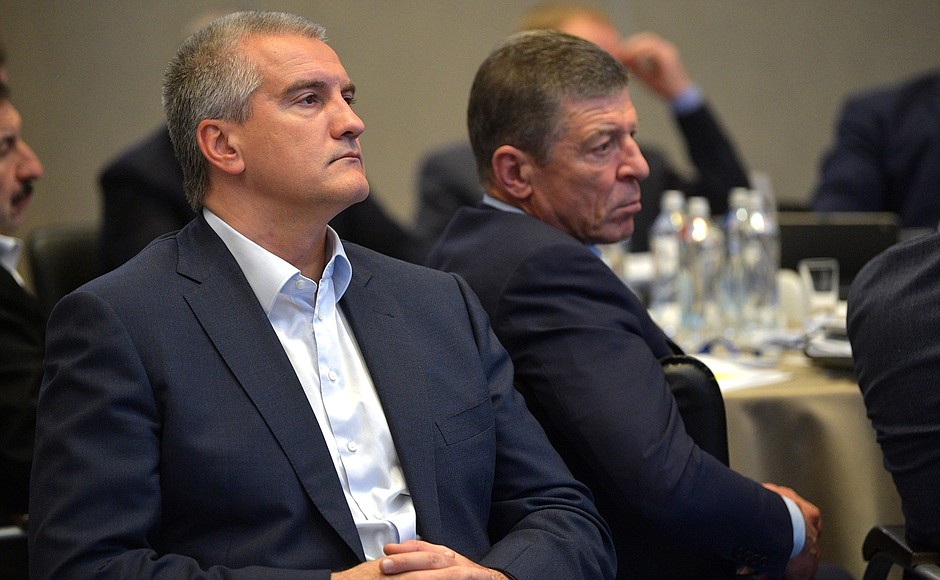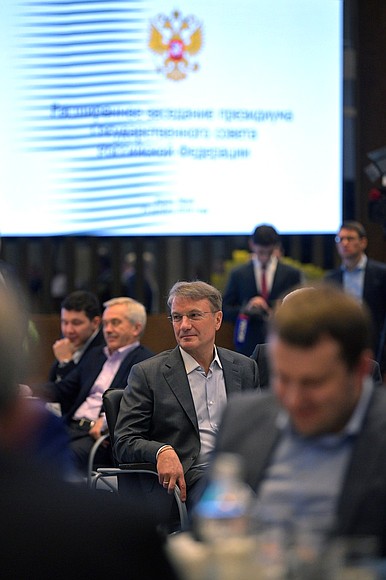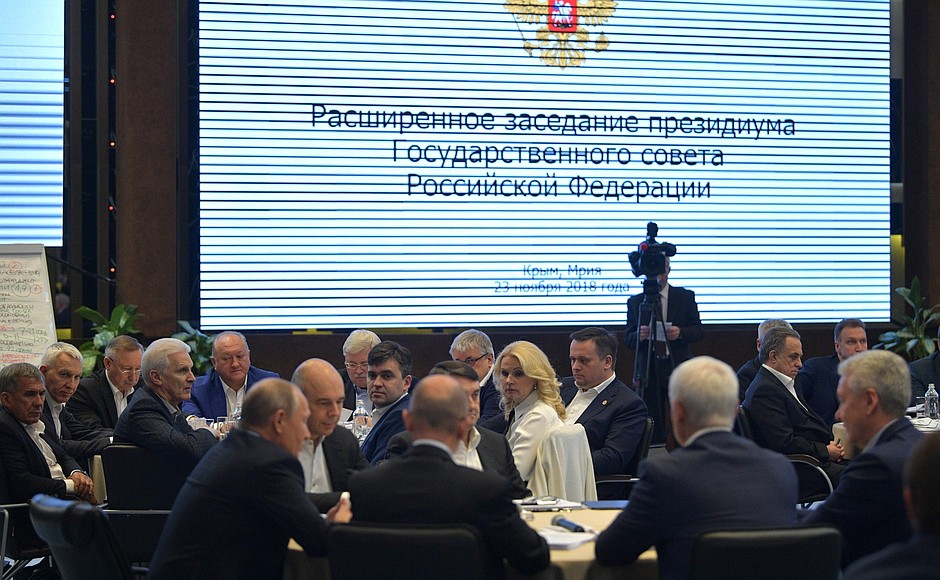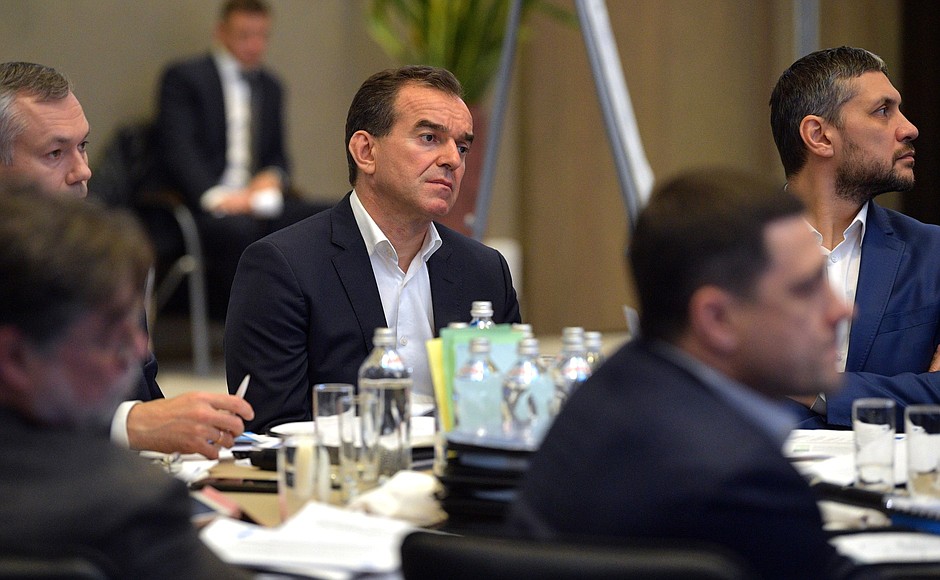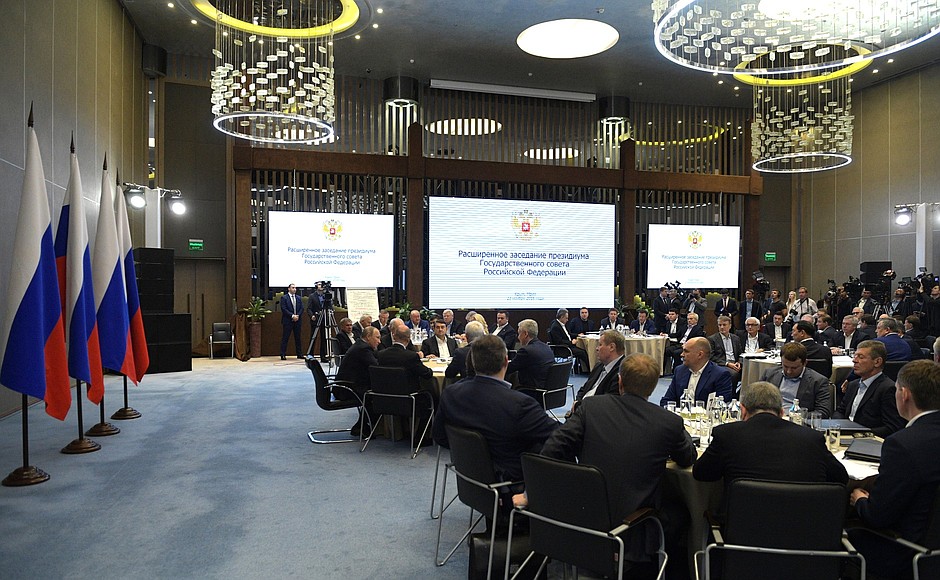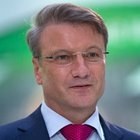The meeting was held at the Mriya hotel complex as an informal dialogue between the President and heads of the regions.
Prior to the meeting, Vladimir Putin toured the hotel grounds. The President was accompanied by Sberbank CEO German Gref.
* * *
Opening remarks at the State Council Presidium meeting
President of Russia Vladimir Putin: Good afternoon, colleagues,
First, I want to thank Mr Gref for providing such a good venue for our work and showing me around the hotel and its grounds. It is a nice hotel, very beautiful. Congratulations to Sberbank, good job. Soon, they will have a vineyard here and everything that a vineyard should have. It will be a full-service hotel.
See also
However, we gathered for a different reason, which is to work. I am aware that today's presidium meeting has an unusual format. You have gathered for a two-day session. We worked yesterday, and worked this morning already. The topic of discussion is important: the implementation of the May Executive Order.
Strictly speaking, the point is not about the Executive Order and not even the national projects, which include all our joint efforts to achieve the well-known benchmarks that our country needs. The point is about the outcome of this work. We need concrete results, and the people need concrete results as well. We talked about the need to achieve a breakthrough – a breakthrough – in important areas such as healthcare, education, infrastructure and much more so that the situation in the country improves and the people can have a better life.
I talked with some of you separately about this. The day before yesterday I met with [Moscow Mayor] Sobyanin, who shared with me his ideas for organising this work, and I decided that I should discuss this with you. Of course, not all governors but only members of the State Council Presidium are here – we sometimes meet in this format, but we will talk with all the others later.
Why is this so important? Because we must work towards practical results not in the office but out there where the people live: in cities, towns and villages. We want the people see the change not in our reports or on paper but in reality. There is a common expression, “an average temperature in the hospital”. We do not need an average temperature. What we need is concrete results which the people can see.
When I see target figures, such as to double visits to cultural facilities – this is speaking figuratively, of course – I want to know what groups of people will be visiting and what kind of cultural facilities we are talking about. Will it be the same groups of people who will visit these facilities more often, or are we talking about different groups? And, most importantly, what will they see, hear or feel there? And how much will the things they see, hear or feel enhance their awareness of their inseparable connection to the national culture and current cultural achievements? And so on.
The same goes for infrastructure. But the idea of increasing the number of roads from 30–35 percent to 40–45 percent and improving road standards is not easy to grasp, is it? Will we get rid of potholes or not? Or will the standards be changed so that the 30–35 percent we have today will become 40–50 percent tomorrow, but the potholes will stay?
We do not need fine words on paper. We need all this to happen in real life, so that everyone will see the results of our common work through changes in their living standards, wages and pensions. What we need is not “average” figures but concrete results expressed in monetary terms, which is very important for the people, as you and I know. How much the people earn today and how much they will earn tomorrow – this is what is important.
I know that you have formulated proposals on the organisation of this work. Let us discuss them.
<…>
